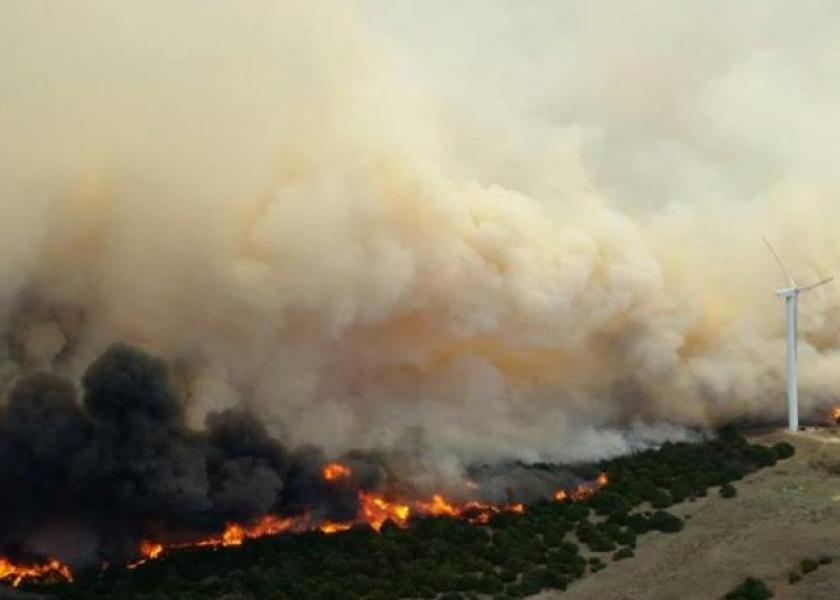Great Plains Wildfires on the Rise

This spring, more than 1.5 acres burned in Oklahoma, Kansas, Texas and Colorado. It will take ranchers in these areas years to rebuild, but you can help by donating to the Drovers/Farm Journal Foundation Million Dollar Wildfire Relief Challenge by July 31. Every dollar donated is matched by the Howard G. Buffett Foundation. Learn more at Wildfirereleiffund.org.
A new study by the University of Nebraska shows that wildfires across the great plains region are becoming more frequent.
The number of fires that have occurred in the region in the past thirty years has tripled, according to researchers. And each fire is affecting more land - the average area affected by a wildfire has grown by 400%.
Lead author on the study, Victoria Donovan, says the area used to see a more wildfires. But as populations grew, those wildfires were better suppressed.
"The great plains used to be very frequently burned, from what we understand, through natural wildfires and also through the application of fire by Native Americans," says Donovan. "But after European settlement, we've been very effective at fire suppression."
But co-author Dirac Twidwell says the number of fires puts the region in similar risk as parts of the country that fight wildfires yearly.
"The great plains will be the next wildfire frontier," says Twidwell. "We're the next Rocky Mountains. We're the next California."
In the late 1980s and early 1990s, the great plains saw an average of 33 wildfires a year, according to the study. Between 2005 and 2014, that number jumped to 114 per year.
The study says one reason for the increase is the planting of more evergreen trees near homes and cities that serve as fuel for fires. As the population has increased near wildlife habitats, fuel becomes more plentiful and accidental ignition of fires by humans has increased. Add in severe drought, which the area has seen in recent years, and the chances of widespread fires increase even further.
Twidwell noted that perhaps our way of thinking about these fires could be a part of the problem.
"Instead of trying to put all our efforts into eradicating fire, perhaps we should treat it like other forces of nature, like flooding, earthquakes or volcanic eruptions," he said. “One of the paradoxes is that if you don’t have prescribed fires, you eventually get wildfires that we can’t control.”
Read more about the study here.







